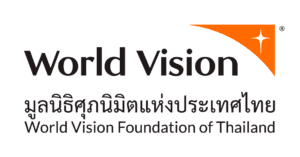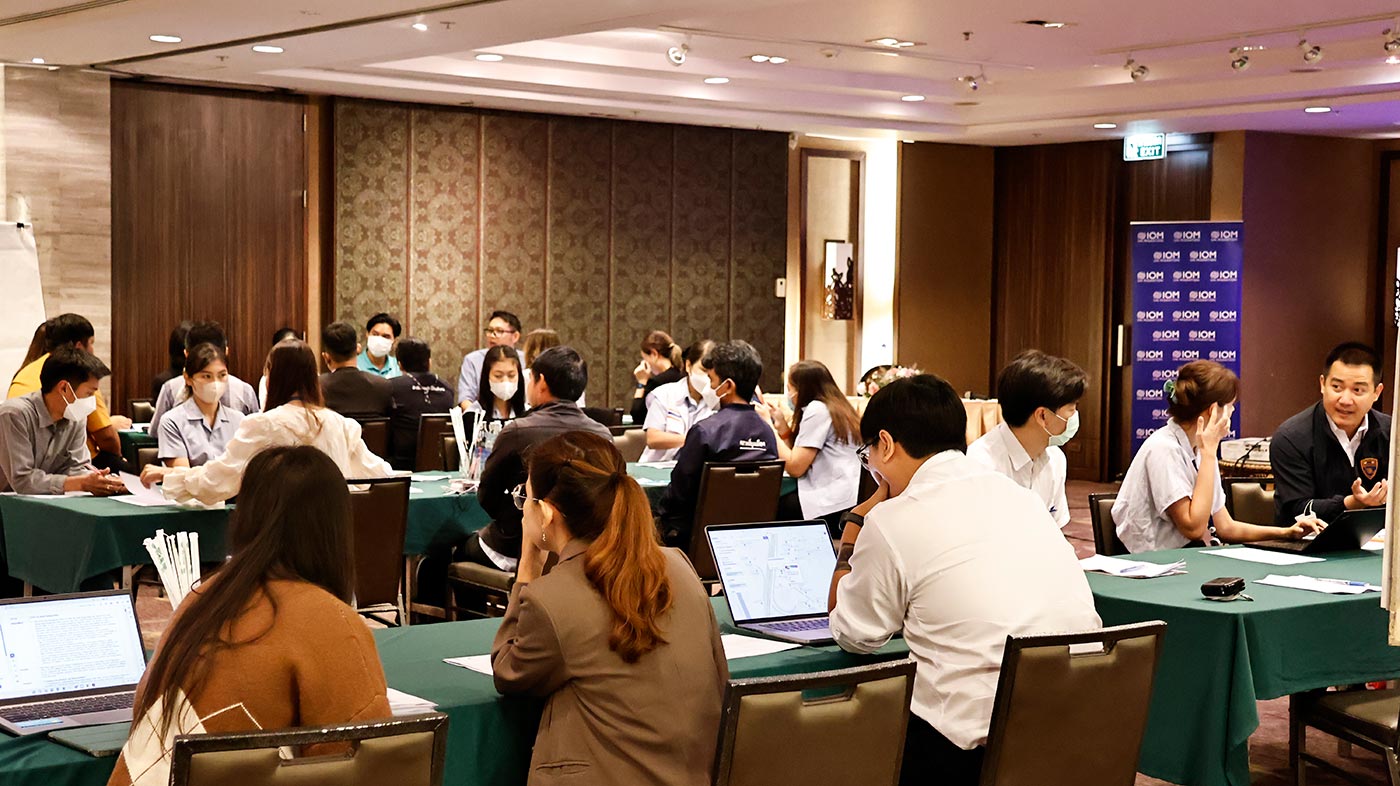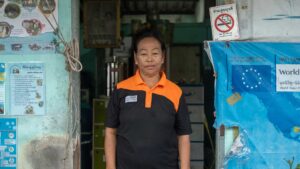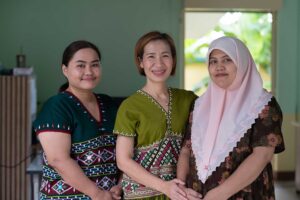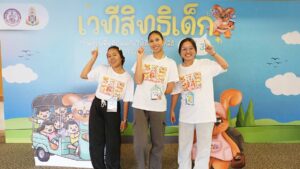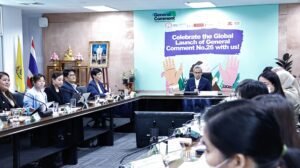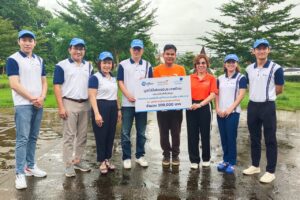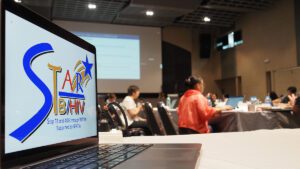World Vision Thailand and International Organization for Migration (IOM), funded by the Government of Japan, under the “Addressing the Needs of Vulnerable Migrants within the Humanitarian, Development and Peace Nexus (HDPN) in Thailand”, have conducted a workshop to present the survey results and build preparedness for current challenges faced by the vulnerable migrant group and to develop migrant workers and service providers mapping jointly.
The morning session featured a presentation of survey results on multi-sectoral needs assessment and access to services and information. The data was collected from Bangkok, Pathum Thani and Nonthaburi provinces to conduct a detailed analysis of 12 key needs of migrants, including migration, identification documentation, education, employment, food security and livelihoods, protection, health services, and housing.
Khun Chatra BAUDE, the representative of IOM, revealed the survey results answered by the migrant respondents from various occupations, with the top three being vendors, service providers and food producers. Notably, 90% of respondents reported that their primary income source was from employment. However, 13% indicated that their average income was below the minimum wage.
Mr Rueangyot Chayapiwat, the Labour Specialist from the Department of Labour Protection and Welfare, discussed the course of action to be taken when migrant workers are not paid the agreed-upon wages: “Initially, we use tripartite discussions, among the government official, employer, and employee, to reach a mutual understanding based on the labour relations principle. However, if the employee wishes to file a complaint and the employer does not comply despite our suggestion, the employer will be forced by legal persecution to ensure they comply with the law.”
Another pressing issue that has persisted for a long time is access to healthcare services. Although the survey results showed that 69% of migrants have access to healthcare services, including hospitals or clinics, the primary challenges they face include the language barrier, medical fees, and cross-cultural differences, which hinder their access to healthcare services.
Regarding health insurance for migrant workers, the survey found that there are three main reasons migrant workers find health insurance difficult: they are unaware of the covered services, do not know which medical facilities they can use and are concerned about the fee. As a result, 49% of migrant workers do not have health insurance.
Ms Prueksachol Laosakulsiri, the medical social worker at Nopparat Rajathanee Hospital, shared: “The most common problem we encounter is that unregistered migrant workers have no legal documents and, therefore, no access to healthcare when they get sick and seek treatment. They face two main challenges: they can only afford partial treatment or none at all. As a result, we have to provide financial assistance for their treatment. We must coordinate with relevant agencies to assist them or report the case to the police for further legal action. Therefore, we would like to advocate for a policy that requires all migrant workers to have health insurance before entering Thailand, such as at immigration checkpoints or airports. This would be very beneficial as we cannot predict when migrants will fall ill.”
Furthermore, a survey on risks in daily life found that for adults, the risk of substance abuse is as high as 65%. However, what is more concerning is that when delved deeper into the situation of children in this area, we find that domestic violence ranks among the top three risks for both boys and girls.
When faced with risks to their physical, mental, and living conditions, who can these migrants turn to for help? The survey found that 43% of respondents are unaware of the various services available to migrants, including mental health services, shelter, legal aid, and language interpretation services.
Based on the survey results, the main challenge is to find appropriate solutions. This has led to a brainstorming process involving three groups: Bangkok, Pathum Thani, and Nonthaburi, to collaboratively find ways to address the gaps in the existing problems and to find solutions to the challenges faced by migrants.
The afternoon session became more intense and challenging as the workshop delved into the mapping of relevant agencies and service channels in each area. Mr Papob Siamhan, the project consultant, facilitated the discussion, inviting representatives from the health and labour rights agencies to brainstorm and analyse the procedures for assisting migrant workers under their respective responsibilities. Together, they worked on the mapping of service channels in each area, which will eventually lead to a comprehensive map of services for migrant workers. This map will serve as a valuable guide for migrant workers, providing them with direction and addressing past issues.
This meeting is a collective effort by all sectors to address and resolve past issues, which help fulfil the needs and ensure access to services and benefits that migrant workers are entitled to. The goal is to reduce inequality and violence, which is not the responsibility of any single agency but the collective effort of all of us as human beings.
